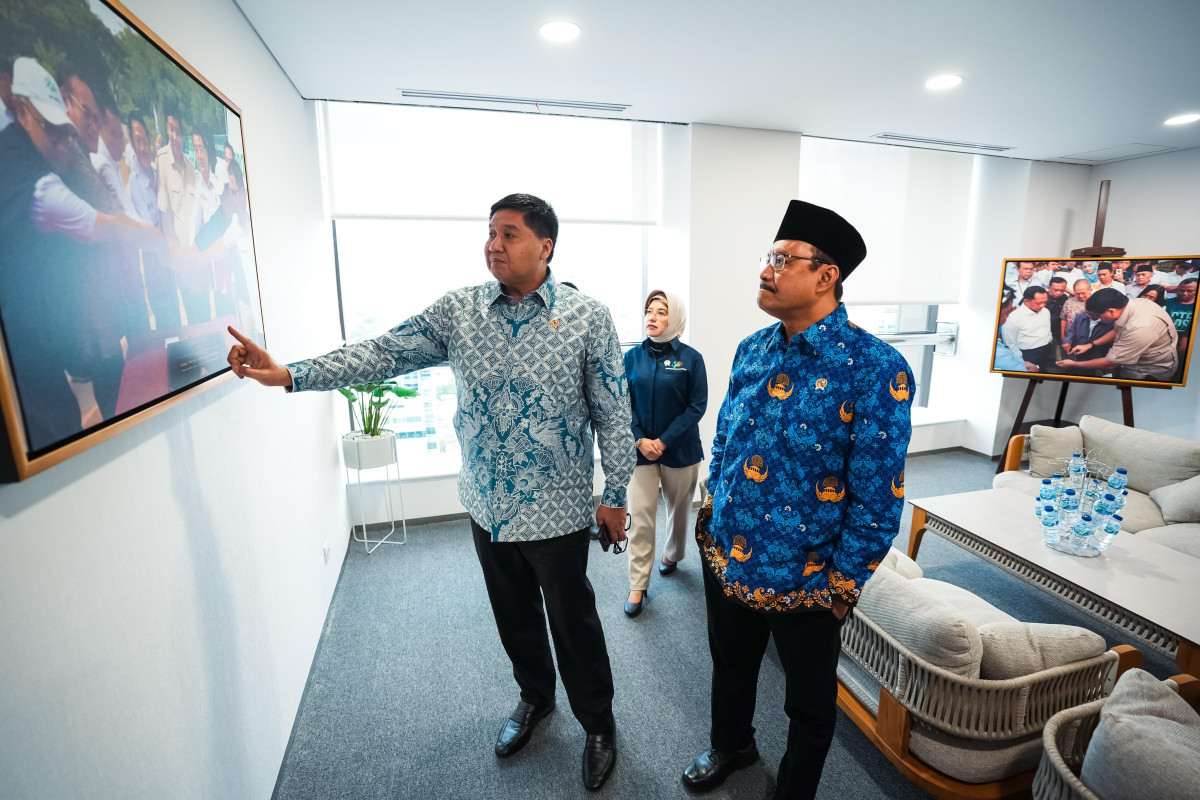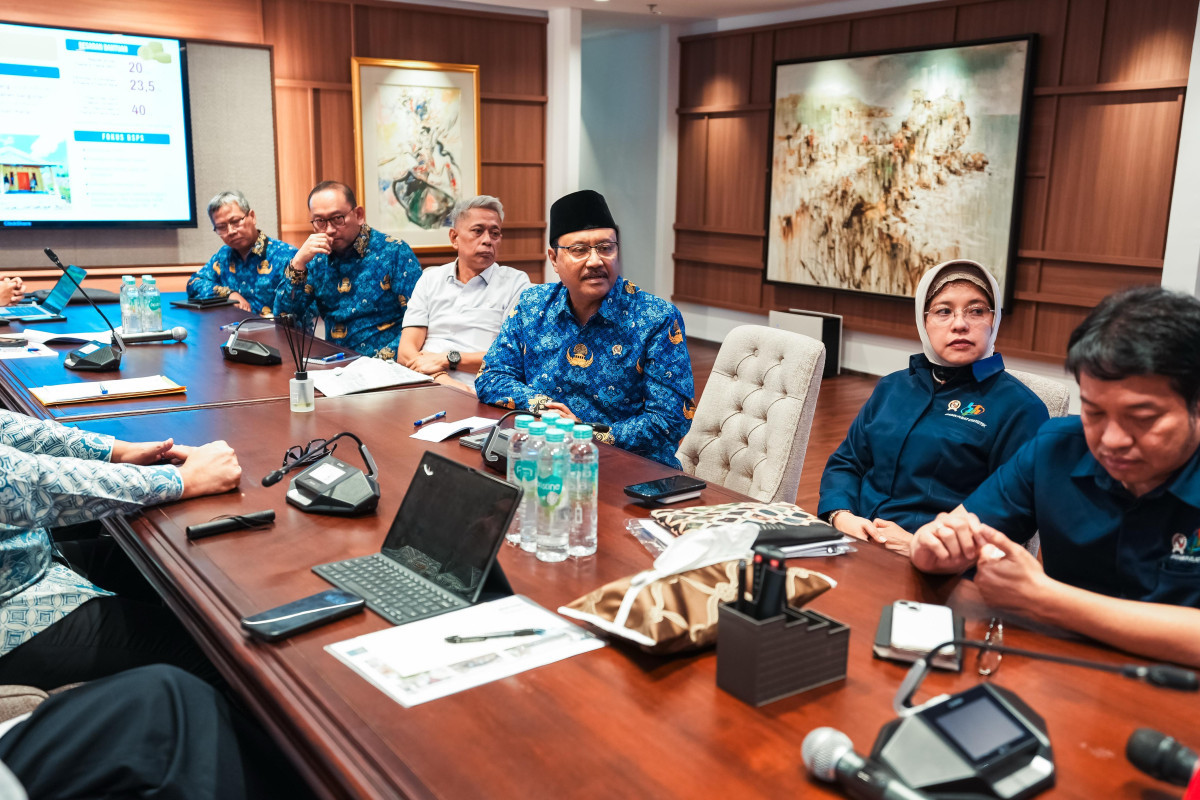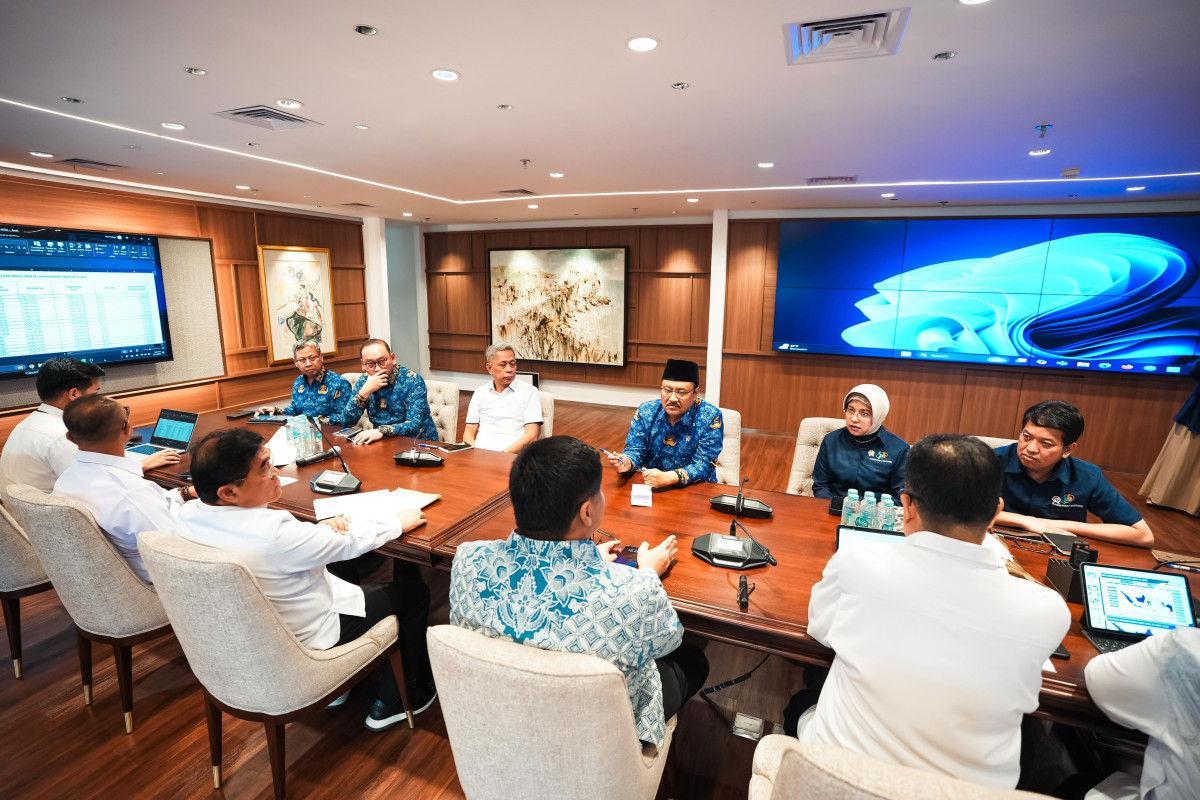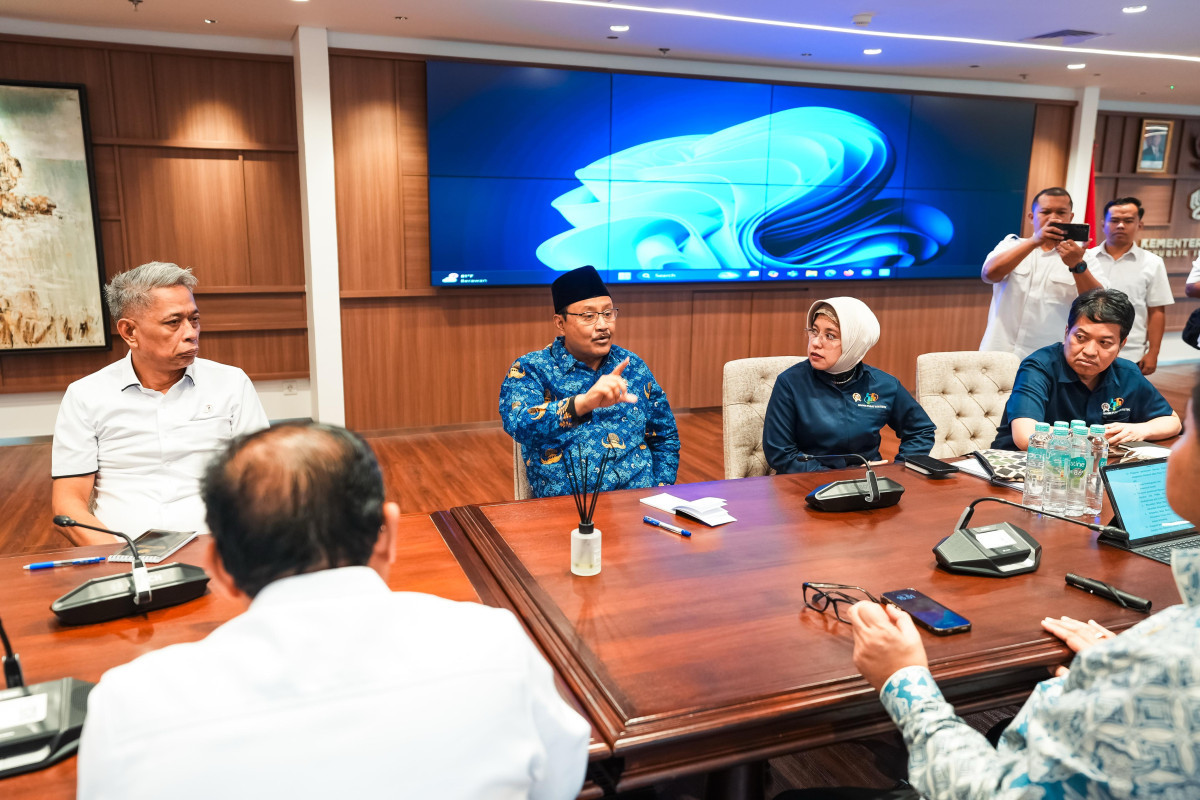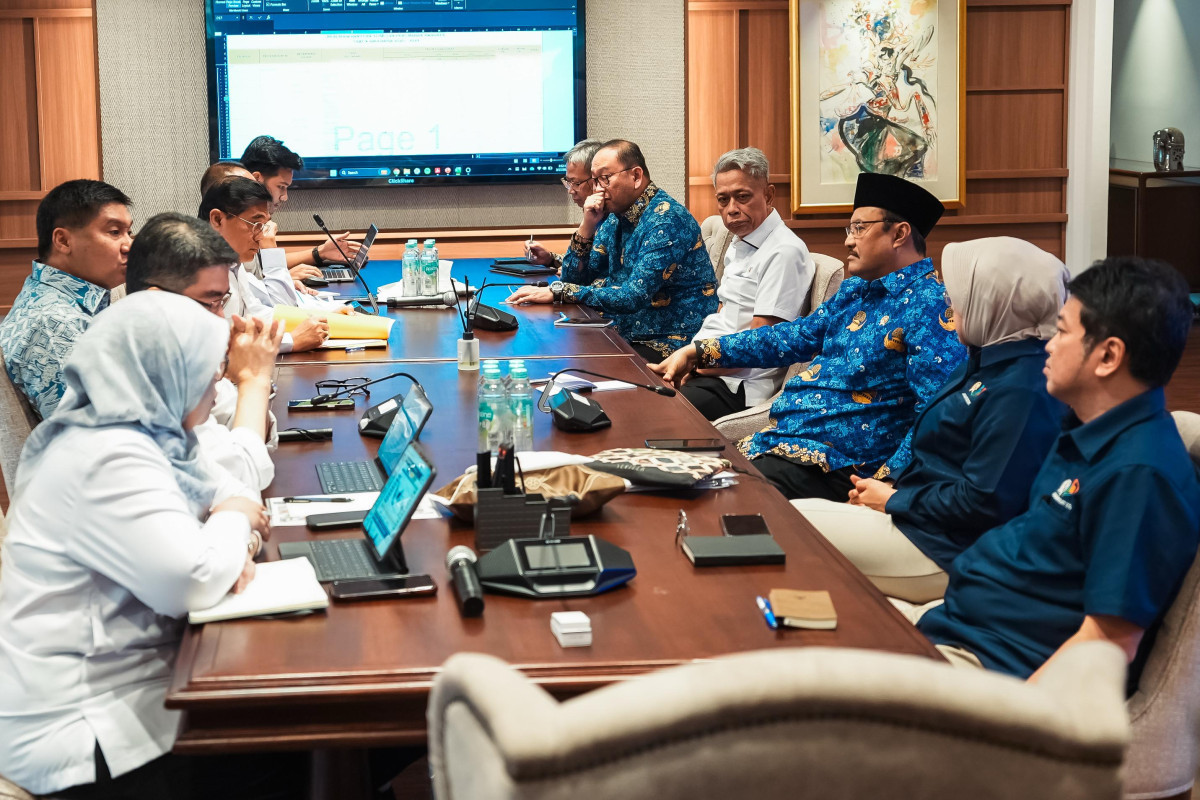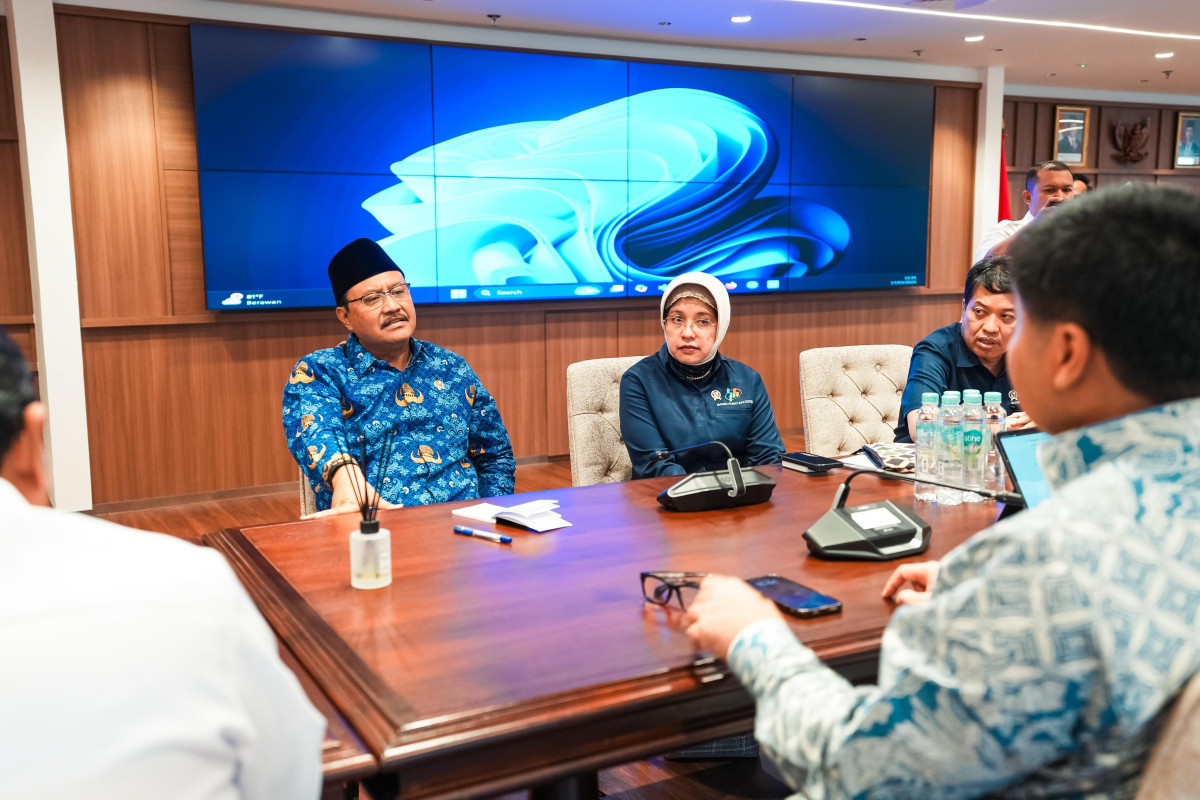JAKARTA (March 18, 2025) – Ministry of Social Affairs (MoSA), together with Ministry of Public Housing and Settlements and Statistics Indonesia (BPS) are synergizing to make President Prabowo's priority program related to the target of zero percent extreme poverty in 2026 a success.
The collaboration between the three institutions will focus on providing habitable housing by referring to National Socio-Economic Single Data (DTSEN). As a start, data and program synchronization will be carried out.
"Mr. Ara (Maruarar Sirait) also has a program that is similar to ours (MoSA)," said Minister of Social Affairs Saifullah Yusuf (Gus Ipul) at the office of the Ministry of Public Housing and Settlements, Jakarta, Monday (3/17/2025).
In addition to Gus Ipul and Minister Ara, Head of BPS, Amalia Adininggar Widyasanti was also present at this meeting.
Ministry of Public Housing program that Gus Ipul referred to similar with MoSA, namely the Self-Help Housing Stimulus Assistance (BSPS). The program for providing livable housing is closely related to the work of MoSA and DTSEN.
"We are very grateful to see the planning that has been made and brought together with this program. This certainly makes our targeting easier compared to previous data," he said.
Regarding completeness, Social Affairs Minister Gus Ipul guaranteed that the poverty data in DTSEN has a clearer ranking starting from deciles 1, 2, 3 and so on so that it is worthy of being used as a reference.
This was agreed by the Head of BPS Amalia Adininggar. She explained the decile ranking in DTSEN. Decile 1 includes data on extremely poor residents with incomes below IDR 400 thousand. Decile 2 with incomes below IDR 600 thousand and decile 3 below IDR 900 thousand. "Furthermore, the criteria for each decile are different in each province," he said.
Regarding the priority of the poverty alleviation program targets, Gus Ipul explained that they are in decile 1, decile 2 and decile 3. Including some of them vulnerable families who need to be supported and facilitated so that they move up a class instead of down a class.
"The focus is on the extremely poor, then the poor, above the poor, there are the vulnerable," he said.
Gus Ipul said that for the effectiveness of the program, data accuracy is very important. Although DTSEN is dynamic because there are people who die and move house every day, there is a data update mechanism.
"So later, BPS will update the data every three months. We hope that the data we have remains accurate," he said.
He added that DTSEN is currently in ground checking. The target is that it will be completed as soon as possible so that DTSEN can be used in the distribution of social assistance in the second quarter.
Receiving this explanation, Minister Ara said that he would adhere to DTSEN in implementing BSPS. He explained that this program seeks to improve the quality of people's homes so that they meet the requirements in terms of health, sanitation, clean water and building. This BSPS program also targets the extremely poor, poor and vulnerable.
 Bahasa
Bahasa
 English
English


